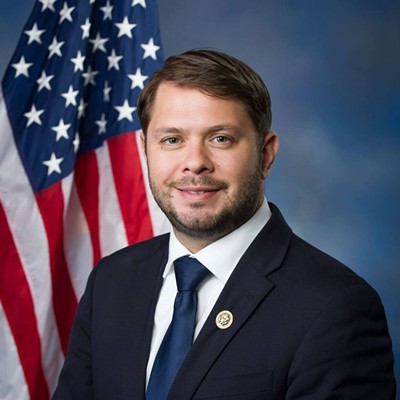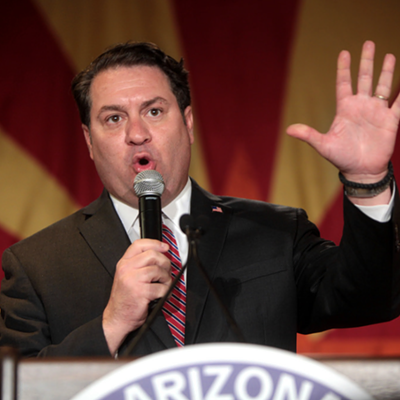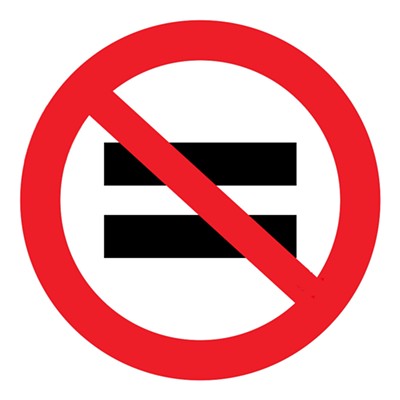It appears that the federal government will be creating Arizona's health-insurance exchange.
Gov. Jan Brewer announced last week that she would not pursue a state-run exchange, an online marketplace where Arizona consumers could compare and purchase various health-insurance plans.
States have the option of creating exchanges, which are a key part of ensuring that people can compare benefits and purchase insurance policies as part of the Obama administration's Affordable Care Act. If the states decline to create an exchange, the federal government will step in and create one for them.
Brewer, who had spent millions of federal-grant dollars laying the framework for a state-run exchange, said she concluded that it would be costly to run a state exchange, and that too many questions about how it would work remained unanswered.
"My opposition to the Affordable Care Act is unwavering, as is my belief that it should be repealed and replaced with legislation that achieves its stated goals: to improve access to quality, affordable health care in this country," Brewer said in a statement announcing the decision last Wednesday, Nov. 28. "But I am also aware that the ACA remains the law of the land. Likewise, though I am a steady advocate of local control, I have come to the conclusion that the state of Arizona would wield little actual authority over its 'state' exchange. The federal government would maintain oversight and control over virtually every aspect of our exchange, limiting our ability to meet the unique needs of Arizonans and the Arizona insurance market."
Brewer joined GOP governors in Texas, Louisiana, Ohio and other states who have also turned the responsibility over to the federal government. By doing so, she avoided a fight with Republican members of the Legislature, who opposed creating an exchange.
State Sen. Andy Biggs, who will serve as Senate president in the upcoming session, said he supported Brewer's decision.
"I appreciate her thoughtful deliberation and the research of the governor and her advisers on the concept of an exchange run by the state," Biggs said in a press release. "I concur with her opinion on the drawbacks of a state-created but federally controlled exchange. Any exchange run by Arizona would still include an inappropriate imposition by the federal government on our state."
State Rep. Carl Seel, a Phoenix Republican, vowed to find a way for the state to nullify the federal law.
"I am proud of Gov. Brewer for having stood up for the taxpayers of Arizona," Seel said in a press release. "In light of her position on this matter, I look forward to introducing legislation that will allow Arizona to ultimately opt out of Obamacare as well as deal with other salient issues associated with the largely unpopular plan."
Democratic state lawmakers called Brewer's decision to opt out a missed opportunity for them to work with Republicans to create a state-run exchange.
State Rep. Bruce Wheeler of Tucson said he had mixed feelings about the exchange. He told the Tucson Weekly that he was concerned there was still considerable uncertainty about how the exchanges would work.
"When the governor says we don't know everything that's going to be in there, I have to give her credit to some degree—we don't know what's going to be in there," said Wheeler, who will serve as minority whip next session. "But bottom line, I think the state should be doing it, anyway."
State Sen. Linda Lopez of Tucson, who will serve as assistant minority leader in the upcoming session, said in a press release that she was "puzzled that the governor is willing to defer to the federal government control of a job best done by local groups and entities that have a better understanding of the health-care needs of our citizens. It is certainly disheartening that Republicans in the Legislature put partisanship first and vowed to derail any attempt to create a state-run exchange."
U.S. Rep. Raúl Grijalva joined in the criticism of Brewer.
"Gov. Brewer's decision is a missed opportunity to show some leadership on one of the major public-policy issues of our time," Grijalva said. "Fortunately, we have an administration and a federal government working tirelessly to provide the quality care Arizonans deserve. The Department of Health and Human Services, in doing the work Gov. Brewer will not, is prepared to meet the unique health needs of Arizona's changing population, and I look forward to working with the appropriate officials to see it happen in a fair, timely and cost-effective way."
While the status of the state-run insurance exchange is settled for the foreseeable future, the Legislature still needs to grapple with the question of whether to expand AHCCCS (aka Medicaid) eligibility to people whose incomes are as much as 133 percent of the federal poverty level, in order to receive federal matching funds.
Expanding the eligibility would cost the state about $1 billion between now and 2020, but Arizona would receive more than $14.7 billion in additional federal health-care funds, according to an estimate prepared by the Joint Legislative Budget Committee early this year.
State Sen.-elect Steve Farley, a Democrat from midtown Tucson, said that he anticipated a fight in the Legislature over the expansion.
But Farley said turning down the federal dollars would be foolish.
"It's a bad idea to turn down money that you could use to strengthen your health-care system and add to your state's economy," Farley said.

















